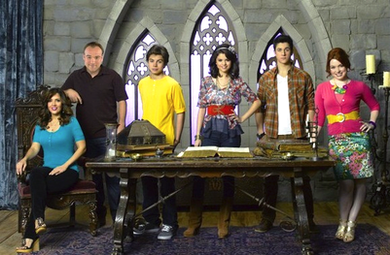Am I the only one who just noticed that it’s Wednesday? The holiday week with the free day is completely screwing me up.
Just to make this a relevant post:
Spend less!
Save more!
Invest!
Wee!
The no-pants guide to spending, saving, and thriving in the real world.
Selena Gomez is no longer the innocent yet rebellious Alex from Disney’s hit show Wizards of Waverly Place. In fact, the quirky and wholesome child star who was beloved by so many young women has now become a scantily

clad pop star that is singing risque lyrics to her on again off again pop star boyfriend Justin Beiber. Her transition to adult stardom has not been an easy one, and many believe that her role in “Spring Breakers” is a sign that she has officially entered adulthood and kissed her teen-friendly role preference in the past. But unlike other famous Disney child stars like Lindsey Lohan and Britney Spears, Gomez has had a relatively smooth path to adult stardom with only minor bumps in the road. But many people are asking themselves whether or not child stars can actually make it as adults, or whether their career is over once their cute phase stages.
Child stars are aware of the fact that they are always being watched. They become the idols of their young fans, and these young idols rely a lot on their cuteness to become a celebrity. But transitioning from a cute kid to a talented adult actor can be a difficult feat. Not only does the star have to earn a new fan base, they also must find a new identity and decide which types of roles they are willing to take now that they are a mature adult able to make their own decisions. Sometimes, even children who do not fall into the drug and alcohol trap, find it difficult when they are given control of their own careers without their guardian’s rules.
The Public is Less Receptive to a Child Star Turned Adult Star
Die hard Wizards of Waverly Place will always see Selena Gomez as the lovable yet comedic Alex Russo. While this was her most popular role, it is the role that will makes her transition into more mature roles difficult. The public is less receptive to an adult Selena Gomez, clad in bra tops and short shorts, because they do not realize that she has matured. When the public shuns a child star for taking on more adult roles, the star simply is not sought after for movies and sitcoms. Young female child stars tend to be judged much more than their male counterparts. In fact, Justin Timberlake and Ryan Gosling are both very successful in the acting scene, and they were both Mouseketeers.
It is possible for a child star to make it as a adult, but the person must have thick skin and be prepared for a publicly criticized transition. Many child stars simply choose to retire once they have outgrown the ability to take on youthful roles, and others are not mentally prepared for the scrutiny they will face. Ultimately, a child star can have a successful career in stardom as an adult if the public is ready for the transition.
Privacy Policy for LiveRealNow.net
The privacy of our visitors to LiveRealNow.net is important to us.
At LiveRealNow.net, we recognize that privacy of your personal information is important. Here is information on what types of personal information we receive and collect when you use and visit LiveRealNow.net, and how we safeguard your information. We never sell your personal information to third parties.
Spam
No spam, ever!
Log Files
As with most other websites, we collect and use the data contained in log files. The information in the log files include your IP (internet protocol) address, your ISP (internet service provider, such as AOL or Shaw Cable), the browser you used to visit our site (such as Internet Explorer or Firefox), the time you visited our site and which pages you visited throughout our site.
Cookies and Web Beacons
We do use cookies to store information, such as your personal preferences when you visit our site. This could include only showing you a popup once in your visit, or the ability to login to some of our features, such as forums.
We also use third party advertisements on LiveRealNow.net to support our site. Some of these advertisers may use technology such as cookies and web beacons when they advertise on our site, which will also send these advertisers (such as Google through the Google AdSense program) information including your IP address, your ISP , the browser you used to visit our site, and in some cases, whether you have Flash installed. This is generally used for geotargeting purposes (showing New York real estate ads to someone in New York, for example) or showing certain ads based on specific sites visited (such as showing cooking ads to someone who frequents cooking sites).
You can chose to disable or selectively turn off our cookies or third-party cookies in your browser settings, or by managing preferences in programs such as Norton Internet Security. However, this can affect how you are able to interact with our site as well as other websites. This could include the inability to login to services or programs, such as logging into forums or accounts.

On Thursday, my wife left with my kids and dog. I had to work all day on Friday, so she took off to get an early start on Christmas at my brother’s house. I followed Saturday morning.
Two nights with no whining, and a bed to myself.
Friday afternoon, my wife called to tell me about her day.
When she got to my brother’s, she took her tailgate down to get the suitcases out of the back of her truck. She left the plastic container full of presents in her truck, since we’d be exchanging presents at my parent’s house nearby.
Friday morning, she left to feed her shopping addiction for a few hours.
When she got to the giant store that had our new car seats on sale, she discovered that she had neglected to put the tailgate back up on the truck when she unpacked. This was the box that held most of our budgeting overspend.
Gone.
When she called me, she was retracing her steps, hoping to find the box.
I was upset.
She didn’t find the box on the side of the road.
Gone.
Normally, this would be a strong object lesson in the futility of rampant consumerism. A lot of zen-like “the stuff you own is fleeting”, amidst the wailing of children who are discovering that their Christmas presents evaporated in a ditch somewhere.
Somebody found the box. I don’t know who.
Whoever it was, opened the box and saw the tears of small children inside. She read the name tags and, amazingly, recognized enough of the first names to place the family.
Keep in mind that I live more than 100 miles away, and moved out of the town 15 years ago.
This anonymous Christmas elf brought the box into a nearby gas station, and asked them to call my parents, since the names on the tags matched those of my parents’ grandchildren.
Everything was still in the box.
Everything was still intact.
Anonymous Christmas Elf saved Christmas for my family
.

The summer of 2013 has proven to be a destructive one. Brush fires have engulfed much of the Western United States, consuming large forests and chasing citizens out of their homes. The fire known as the Rim Fire is closing in one the Yosemite National Forest, one of the most popular tourist destinations in the country.
Managing forest fires in the Western United States has been a consistent struggle over the decades with budgets proving to be hard to navigate around for local, state, and federal firefighting forces. Around 32,000 individual brush fires across California and other western states has resulted in the destruction of 3 million acres of land. To battle these blazes, the U.S. Forest Service, a federal office, contracts with private, state, and local firefighting agencies by providing funding, equipment, resources, and the chemicals needed to stop the blazes. On August 19th, 2013, the U.S. Forest Service has used $967 million to fund the management of these fires. At that time, the U.S. Forest Service only had $50 million left in its budget.
Why is the budget so affected this year compared to other years? For example, in 2012, the total amount of forest fires the U.S. Forest Service answered to totaled to around 67,700 fires and the destruction of 9.3 million acres of land. However, budgetary choices made by the Congress over the decade have made available funds for the U.S. Forest Service hard to find. In addition, the budget sequester, which went into effect this budget year, subtracted $115 million from federal wildfire management programs.
In addition, individual states are seeing their state budgets affected. California had to declare a state of emergency on August 23rd, 2013. One example of a damaging effect to California included the Rim Fire destroying much of the infrastructure near the Hetch Hetchy Resovoir, which supplies water and hydroelectric power to much of San Francisco. As a result of the damage, the city of San Francisco and neighboring municipalities that use the same energy source, spent over $600,000 in replacement water and energy. Private costs are also immense; thousands of homes and private property have been destroyed across the west, including from the Rim Fire. The Rim Fire near Yosemite threatens the national park, the metropolitan San Francisco area’s water and energy supply, and the major municipalities near. By August 25th, 2013, 143,980 acres near Yosemite National Park have been engulfed by the Rim Fire with only 7% of the fire contained. The Rim Fire is approximately 20 miles away from Yosemite National Park and although Route 120 heading into the park is closed, park officials are hopeful that the park will not be affected by the fire thanks to its current distance. If the Rim Fire expands to the Yosemite National Park, the costs for the U.S. Forest Service from the fire damage and trying to contain the fire could catapult higher.